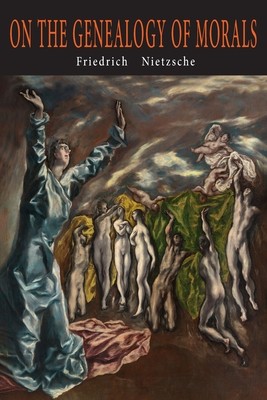
- We will send in 10–14 business days.
- Author: Friedrich Wilhelm Nietzsche
- Publisher: Martino Fine Books
- ISBN-10: 1684225760
- ISBN-13: 9781684225767
- Format: 15.6 x 23.4 x 0.9 cm, minkšti viršeliai
- Language: English
- SAVE -10% with code: EXTRA
Reviews
Description
2021 Reprint of the 1913 Edition. Friedrich Nietzsche claimed that the purpose of On the Genealogy of Morals was to call attention to his previous writings. But in fact, the book does much more than that, elucidating and expanding on the cryptic aphorisms of Beyond Good and Evil, and presenting a coherent discussion of morality in a work that is more accessible than much of his previous writings. The book shows him using philosophy, psychology, and classical philology in an effort to give new direction to an ancient discipline. The work consists of three essays. The first contrasts master morality and slave morality and indicates how the term "good" has widely different meanings in each. The second inquiry deals with guilt and the bad conscience; the third with ascetic ideals-not only in religion but also in the academy.
- Author: Friedrich Wilhelm Nietzsche
- Publisher: Martino Fine Books
- ISBN-10: 1684225760
- ISBN-13: 9781684225767
- Format: 15.6 x 23.4 x 0.9 cm, minkšti viršeliai
- Language: English English
2021 Reprint of the 1913 Edition. Friedrich Nietzsche claimed that the purpose of On the Genealogy of Morals was to call attention to his previous writings. But in fact, the book does much more than that, elucidating and expanding on the cryptic aphorisms of Beyond Good and Evil, and presenting a coherent discussion of morality in a work that is more accessible than much of his previous writings. The book shows him using philosophy, psychology, and classical philology in an effort to give new direction to an ancient discipline. The work consists of three essays. The first contrasts master morality and slave morality and indicates how the term "good" has widely different meanings in each. The second inquiry deals with guilt and the bad conscience; the third with ascetic ideals-not only in religion but also in the academy.


Reviews